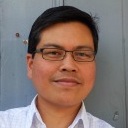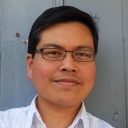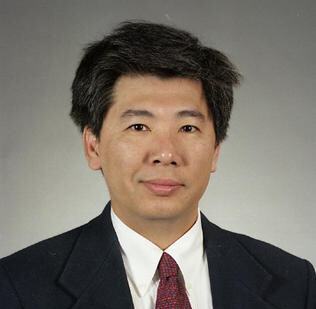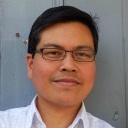Page 31 • (697 results in 0.021 seconds)
-

By Matthew Salzano ’18 PLU Communication Student I woke up at 8:15 a.m. Nov. 7, 2014, to an email from Michael Bartanen, Chair of the Communication department, with the subject, “You’re famous.” I came to PLU intending to focus my Communication degree on public relations…
) and where we were headed: the “Yes on I-591” rally in Bellevue, Wash., which was anti-gun-regulation. She also told us what we were looking for: color. (“Color” is a term used in journalism to describe what makes the story more human-interest-related. The same word is used to describe the sports anchor who accompanies play-by-play: Color commentators give expert analysis, player history and light anecdotes.) As The Mast’s A&E Editor, I knew finding color wouldn’t be a problem. Making stories PLU
-
Civilization exists by geologic consent, subject to change without notice. - Will Durant Global society is based on geology.
integrate information from a wide range of connected topics such as chemistry, biology, physics, and geography. In this light, geoscientists have a particularly flexible professional skill set that is founded in core analysis and interpretation skills developed in the field and laboratory. Successful students must be able to think three dimensionally, have strong quantitative skills, and be able to communicate clearly through writing and speaking. Field trips are included in most courses.Quick Links My
Department of Earth ScienceRieke Science Center Room 158 Tacoma, WA 98447-0003 -
Global society is based on geology. Our energy resources, construction and manufacturing materials, food and agricultural products, and building sites all depend on the geologic environment.
to work closely with faculty in classes, laboratories, and field studies. Faculty members are available to work individually with students in small seminar groups and on research projects. Located in the Rieke Science Center, the Department of Earth Science has well-equipped classroom spaces and laboratories to support student and faculty research. Equipment includes a research-grade Zeiss scanning electron microscope (SEM) with an elemental analysis detector (EDS), a Geographic Information
-

Professor of English | Department of English | barotrp@plu.edu | 253-535-7318 | Rick Barot has published three books of poetry with Sarabande Books: The Darker Fall (2002), which received the Kathryn A.
magic, I also believe in tough-minded examinations of the thematic and formal elements that we use as writers. As a teacher, I prefer discussions in which everyone seems to have a lab coat on, detailing the mechanics of the work at hand. How a piece achieves its force through writerly decisions—decisions which have been guided by thought and feeling, insight and intuition, analysis and imagination, failure and risk—this is what I care about. As a necessary complement to the writer’s solitary work
-

Secretary of Faculty | Faculty Governance | barotrp@plu.edu | 253-535-7318 | Rick Barot has published three books of poetry with Sarabande Books: The Darker Fall (2002), which received the Kathryn A.
. Even though I believe that a strong piece of writing generates something like magic, I also believe in tough-minded examinations of the thematic and formal elements that we use as writers. As a teacher, I prefer discussions in which everyone seems to have a lab coat on, detailing the mechanics of the work at hand. How a piece achieves its force through writerly decisions—decisions which have been guided by thought and feeling, insight and intuition, analysis and imagination, failure and risk—this
-
by Dana Bodewes, Instructional Designer The beginning of a new academic year provides an opportunity to reflect on effective teaching practices and perhaps try something new. Consider the practice of using “essential questions” during the instructional process. Essential questions explore salient, fundamental ideas that are…
own essential questions, but the instructor should have a pre-established set of questions to guide students’ study and inquiry. McTighe and Wiggins (2013) say a good essential question: 1. Is open-ended; that is, it typically will not have a single, final, and correct answer. 2. Is thought-provoking and intellectually engaging, often sparking discussion and debate. 3. Calls for higher-order thinking, such as analysis, inference, evaluation, prediction. It cannot be effectively answered by recall
-

Professor of English | Gender, Sexuality, and Race Studies | barotrp@plu.edu | 253-535-7318 | Rick Barot has published three books of poetry with Sarabande Books: The Darker Fall (2002), which received the Kathryn A.
magic, I also believe in tough-minded examinations of the thematic and formal elements that we use as writers. As a teacher, I prefer discussions in which everyone seems to have a lab coat on, detailing the mechanics of the work at hand. How a piece achieves its force through writerly decisions—decisions which have been guided by thought and feeling, insight and intuition, analysis and imagination, failure and risk—this is what I care about. As a necessary complement to the writer’s solitary work
-
History students at Pacific Lutheran University develop the skills needed to ask important questions, collect and evaluate evidence, work collaboratively with others, and offer clear and
? Traditionally, the discipline of history has focused on the critical analysis of text-based evidence from the past and seeks a detailed, complex understanding of individual and collective human behaviors as they have changed over time. PLU students of history develop lifelong habits of critical thinking, inquiry-based reading of texts, effective research and technical skills, and the appreciation of complexity and diversity in human behavior. History majors also develop the skills needed to work
Professor Rebekah Mergenthal, ChairXavier Hall, Room 109 12180 Park Ave S Tacoma, WA 98447-0003 -

Professor Emeritus | Master of Business Administration | Dr.
Change, Technology Analysis and Strategic Management, Internet Research, International Journal of Services Technology and Management, Competitiveness Review, Journal of International Technology and Information Management, and the International Journal of Technology Transfer and Commercialization. Dr. Lee is a member of the editorial board of the Technological Forecasting and Social Change (Elsevier), International Journal of Innovation and Technology Management (World Scientific Publishing), Journal
Area of Emphasis/Expertise -

Director of MFA | MFA in Creative Writing - Low Residency | barotrp@plu.edu | 253-535-7318 | Rick Barot has published three books of poetry with Sarabande Books: The Darker Fall (2002), which received the Kathryn A.
magic, I also believe in tough-minded examinations of the thematic and formal elements that we use as writers. As a teacher, I prefer discussions in which everyone seems to have a lab coat on, detailing the mechanics of the work at hand. How a piece achieves its force through writerly decisions—decisions which have been guided by thought and feeling, insight and intuition, analysis and imagination, failure and risk—this is what I care about. As a necessary complement to the writer’s solitary work
Do you have any feedback for us? If so, feel free to use our Feedback Form.


